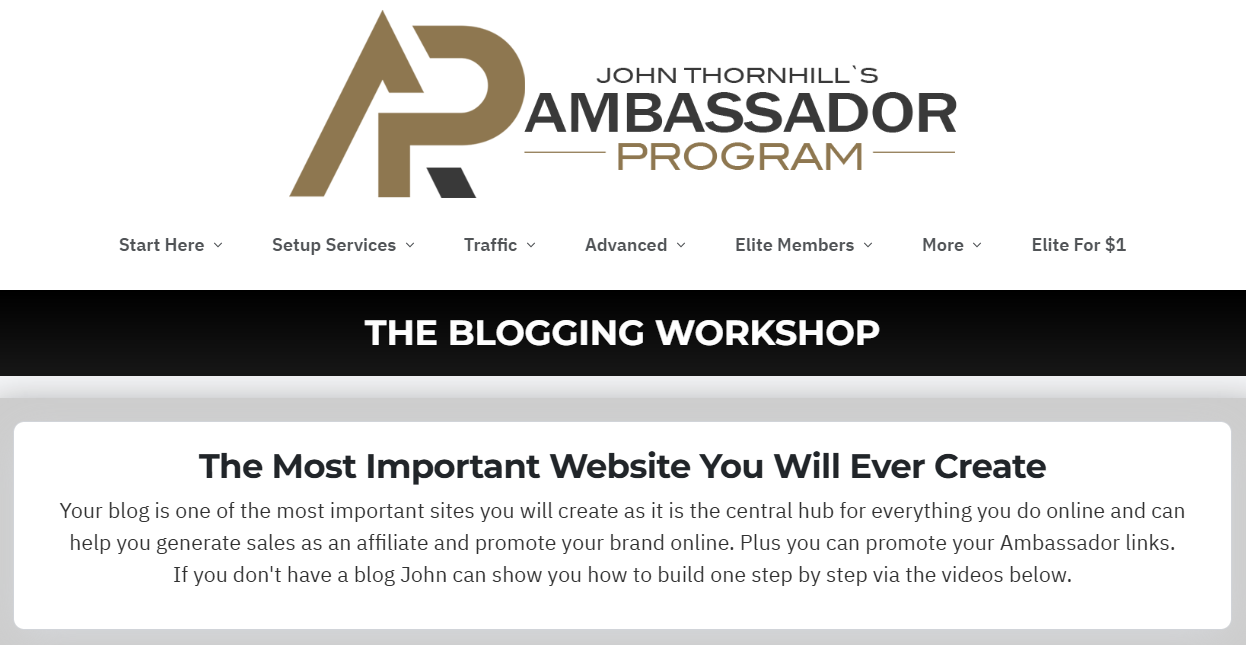Is It Worth It to Start a Blog?
Why Blogging Matters More Than Ever
In today’s digital world, having a blog isn’t just an optional extra—it’s a foundational tool for building your online presence, sharing your expertise, and growing your business. Whether you’re new to affiliate marketing or an experienced online entrepreneur, starting a blog can be one of the most valuable investments of your time.
But is it really worth it? The short answer is YES—and here’s why. In this post, we’ll explore the key benefits of blogging, how it helps you establish credibility, and how it can drive traffic and revenue. Plus, we’ll show you how to get started with ease, even if you’re on a tight budget.
Why You Should Start a Blog
A blog is more than just a collection of posts—it’s your central hub for everything you do online. It’s where potential customers, followers, and collaborators will find you, learn about you, and engage with your content. Here are some compelling reasons why blogging is worth your time:
1. Build an Online Presence
When people search for you or your business online, your blog is likely to be one of the first results they see. A well-maintained blog helps you:
– Showcase your expertise in your niche.
– Share valuable content that educates and inspires your audience.
– Create a positive first impression and establish credibility.
Search engines like Google tend to rank blogs higher than other types of websites, making them a powerful tool for discoverability.
2. Position Yourself as an Expert
Blogging allows you to share your knowledge and insights on topics you’re passionate about. By consistently providing valuable content, you’ll position yourself as an authority in your field.
For example, if your blog focuses on affiliate marketing, you can write posts about strategies, tools, and success stories. Over time, readers will come to trust your advice and look to you for guidance, which is invaluable for building long-term relationships and influence.
3. Build Trust with Your Audience
Trust is the foundation of any successful business. A blog allows you to connect with your audience on a personal level, share your journey, and provide solutions to their problems.
When readers see the time and effort you put into creating content that helps them, they’ll be more likely to trust your recommendations—whether it’s for a product, service, or training program.
4. Drive Traffic and Generate Revenue
A blog is a powerful tool for driving traffic to your affiliate links and other offers. Here’s how:
– SEO Optimization: With the right keywords (like “start a blog,” “affiliate marketing success,” or “online business growth”), your blog posts can attract organic traffic – from search engines.
– Content Marketing: Writing reviews, tutorials, or success stories that link to products or programs you recommend can generate affiliate commissions.
– Lead Generation: By offering a free resource (like a guide or webinar) in exchange for email addresses, you can build your mailing list and nurture leads over time.
How to Get Started with Blogging
Starting a blog is easier than you might think. With tools like WordPress, you can set up a professional-looking blog in minutes. Here’s what you’ll need:
1. A Domain Name
Choose a domain name that reflects your personal brand or business. For example, if your name is Jane Doe, consider JaneDoe.com or JaneDoeBlog.com.
2. Web Hosting with cPanel
Most hosting providers offer one-click WordPress installation through cPanel, making it simple to get your blog online.
3. WordPress
WordPress is a free, user-friendly platform that powers millions of blogs worldwide. It allows you to customize your site, publish posts, and manage content from any computer.
What to Do After Starting Your Blog
Once your blog is set up, here’s how to maximize its impact:
1. Post Regularly
Consistency is key. Aim to publish at least one blog post per week to keep your audience engaged and improve your search engine rankings.
2. Share Your Journey
Document your experiences (like this post is what I learned from Ambassador). Share milestones, challenges, and successes to inspire your readers and show them what’s possible.
3. Promote Your Content
Share your blog posts on social media, in email newsletters, and on other platforms to reach a wider audience.
4. Include Calls to Action
Every blog post should include a clear call to action. Whether it’s encouraging readers to subscribe to your mailing list, download a free guide, or join a webinar, make it easy for them to take the next step.
The Long-Term Benefits of Blogging
Blogging isn’t a get-rich-quick scheme—it’s a long-term strategy for building trust, authority, and an engaged audience. Over time, your blog becomes a valuable asset that can:
– Attract consistent traffic from search engines.
– Build a loyal following of readers and subscribers.
– Generate affiliate commissions, product sales, and other revenue streams.
The sooner you start, the sooner you’ll see these benefits unfold.
Ready to Build Your List and Start Earning High-Ticket Commissions?
Blogging is a powerful way to kickstart your online business, but it’s only the beginning. If you’re ready to take the next step, join our Free Webinar Training Reveal to learn:
– How to start building a responsive email list that drives consistent traffic and sales.
– The exact steps to set up a blog designed to earn high-ticket affiliate commissions.
– Proven strategies to turn your blog into a revenue-generating machine.
